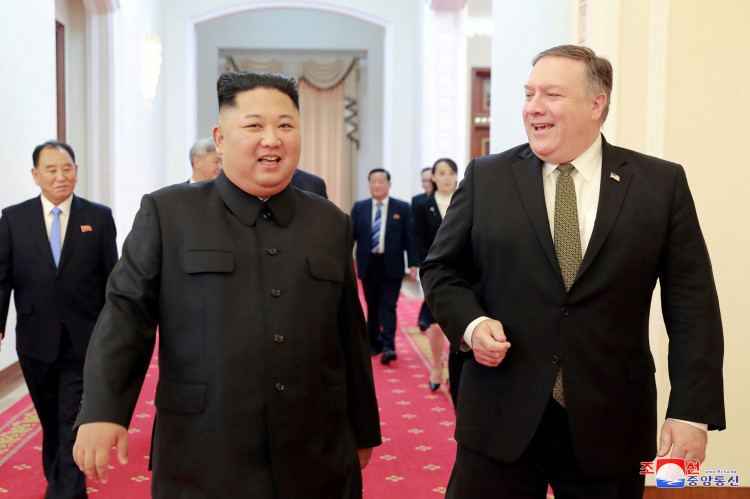The US Secretary of State Mike Pompeo said on Sunday that his meeting with North Korea's leader Kim Jong-Un was rather fruitful with the latter agreeing on the request to allow international governing bodies and experts to inspect its key nuclear testing site which it claimed to have been decommissioned, a decision which is seen as a gesture that the Hermit Kingdom is more committed than ever to denuclearize the country and free the Korean Peninsula from such threats.
In an official statement given by the State Department's spokesperson Heather Nauert, it was confirmed that the Supreme Leader is now giving access to nuclear inspectors coming from different countries and organization to the Punggye-ri nuke test site to confirm the veracity of its claims, a Reuters report said.
Punggye-ri is a network of underground tunnels where the North is believed to have conducted plenty of its nuclear tests.
Aside from this, Pompeo and Kim had also agreed to convene a committee with the sole focus put on the denuclearization process in the Korean region as well as on the preparation for the second summit between US President Donald Trump and the Asian leader.
According to the press secretary to the South Korean President Moon Jae-in, Yoon Young-chan, both Pompeo and Chairman Kim have concurred on the plan to hold the second US-North Korea summit at a much earlier date.
The two figures had already looked at the options for the location and the date of upcoming summit, the US State Department chimed in, without offering more specifics on the matter.
In his own statement, Pompeo told the South Korean leader that there is still a lot to do with the Korean nuclear crisis, although they were able to successfully ticked one right off the list.
Pompeo and Moon convened at Seoul right after the high ranking US diplomat met with Kim in Pyongyang.
As further detailed over at the New York Times, Pompeo and Kim met for two hours in the nation's capital, after which, a 90-minute lunch followed.
The Times said that despite the favorable results of his visit, the US Secretary's meeting with the North Korean head of state somehow failed to mention more substantial information such as the North's inventory of nuclear weapons, its production sites and storage facilities, as well as the rest of its arsenal of missiles and missile launchers.
Washington has made it clear that a list like this would provide the US with a basis if the North has really been true to its commitment to denuclearization.






